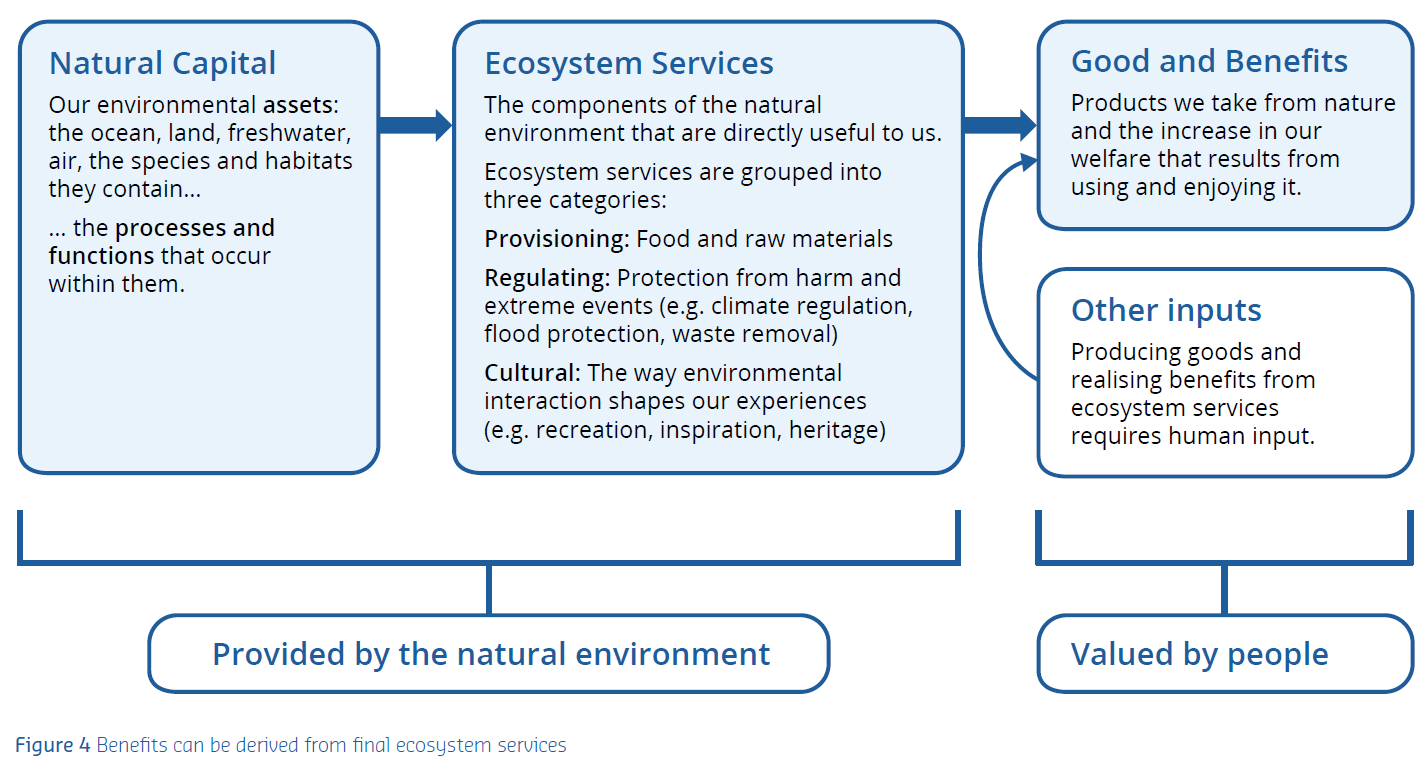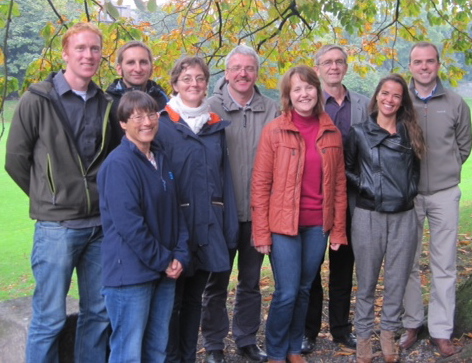Output
Future Science Brief 5, Valuing Marine Ecosystem Services (April 2019)
News article on the launch event at the European Parliament (April 2019)
Launch event report (April 2019)
EMB Science Webinar on Valuing Marine Ecosystems (January 2021)
EMB Science Webinar on Involving Stakeholders in Co-creation of Ecosystem Services Research (September 2021)
Impact report on Valuing Marine Ecosystem Services document (November 2021)
Background
 Marine research has traditionally focused on physical, chemical and biological processes in the water body and its boundaries, whereas the field of marine related socio‐economics is much less studied and understood. Understanding the mechanisms and ways by which humans utilize marine resources and space directly or indirectly is essential for an integrated assessment and management of the coasts, seas and oceans, and will require an innovative interdisciplinary research approach. It is also an intrinsic requirement for achieving a genuine ecosystem approach to the management of marine resources.
Marine research has traditionally focused on physical, chemical and biological processes in the water body and its boundaries, whereas the field of marine related socio‐economics is much less studied and understood. Understanding the mechanisms and ways by which humans utilize marine resources and space directly or indirectly is essential for an integrated assessment and management of the coasts, seas and oceans, and will require an innovative interdisciplinary research approach. It is also an intrinsic requirement for achieving a genuine ecosystem approach to the management of marine resources.
Our foresight activity on Valuing Marine Ecosystems specifically targets the development of tools for the valuation of marine ecosystem services and their benefits and the utilization of these tools to facilitate decision making processes and sustainable management of coasts, seas and oceans and their intrinsic resources.
Objectives and key recommendations
- Include ecosystem valuation in marine management decision models. Ecosystem valuation has advanced significantly over the past decade, however, their results are rarely used for marine management and policy decisions;
- Promote the harmonization of ecosystem service frameworks. The plurality of existing Ecosystem Frameworks and classification systems has led to different interpretations in the meaning of biophysical structure, ecosystem functions and services. Agreement on a standardized framework based on a holistic approach would improve the usages and comparability of ecosystem service assessments at global and national scales;
- Develop a set of indicators for ecosystem services that can be included under existing monitoring programmes. In order to advance the understanding of the relationships between biodiversity and ecosystem functions, suitable ecosystem indicators that can link ecosystem components to ecosystem services need to identified and included in existing monitoring programmes, e.g. under the MSFD;
- Create open databases that contain the data, meta-data, applied methodology and results of marine ecosystem valuation studies (monetary as well as non-monetary). Making valuation data and results available in open databases will increase their comparability and usability. Additionally, the used methodology could be checked according to best practice standards and suitability checklists and inputted in bio-economic models that can link (dynamic or static) natural science models with economic and social science models;
- Enhance trans-disciplinary connections by incorporating fundamental marine science, social science, economic and public health approaches. Ecosystem valuation studies do not only require fundamental marine science, but also understanding of the social context and interpretation of the outcomes (who will benefit or bear the costs, what trade-off should be made between which ecosystem services, etc.) and of the potential health benefits (and cost);
- Set the right scale and boundaries. As the beneficiaries of the ecosystem services under consideration might lay outside the administrative boundaries, cooperation on local, regional and international scale might be necessary to make a robust assessment in the trade-off analysis; and
- Develop the Natural Capital Approach and Natural Capital Accounting. Enhance and standardize existing marine asset data sets, assessment methods and results by addressing issues such as scale, aggregation and ecosystem degradation to facilitate the inclusion on Natural Capital Accounting, and develop from this financing mechanisms (e.g. payments for ecosystem services) to improve the sustainable use of marine natural capital.
Meetings
- 20 February 2014, London
- 1 October 2013, Dublin
- 14 May 2013, Brussels
- 5 October 2018, Online
- 10 October 2018, Online
Members

Chair: Melanie C. Austen, Plymouth Marine Laboratory, UK
Working Group members:
Peder Andersen, University of Copenhagen, Denmark
Claire Armstrong, University of Tromsø, Norway
Ralf Döring, Thünen-Institute of Sea Fisheries, Germany
Stephen Hynes, National University of Ireland, Galway, Ireland
Harold Levrel, French Research Institute for Exploitation of the Sea (Ifremer), France
Adriana Resurreição, CCMAR- Centre of Marine Science & MARE – Marine and Environmental Sciences, Portugal
Soile Oinonen, Finish Environnent Institute (SYKE), Finland
Contact at European Marine Board Secretariat: Sheila Heymans Email